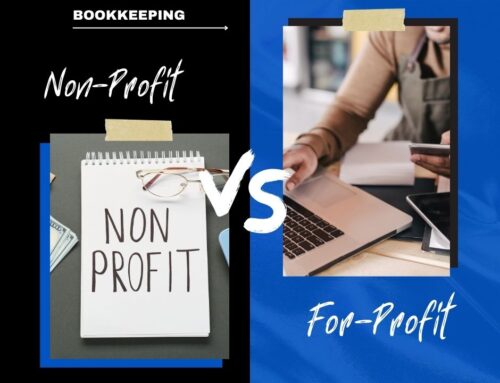Most entrepreneurs will handle their own finances when they first launch a startup. But as your small business scales, you’ll eventually need to add help to your finance department.
A bookkeeper should be one of your first hires.
It will be the responsibility of your bookkeeper to record, review, categorize, and reconcile all transactions related to your small business.
In simple terms, your bookkeeper will keep your records and financial statements neat and organized. Your bookkeeper will also handle billing, with both accounts payables and accounts receivables. It’s common for a small business bookkeeper to manage payroll as well.
Hiring a bookkeeper will improve the efficiency of your business. By delegating tasks to this position, it frees up your time and allows you to focus on other areas of your company.
But for those of you who have never hired a bookkeeper before, you may not know how to approach this. That’s why I created this guide.
I’ll explain when you need to hire a bookkeeper, the traits of a good bookkeeper, and tell you how much it costs to hire a bookkeeper.
When You Need a Bookkeeper
Not every startup will need to hire a bookkeeper on the first day. However, the time will come when you’ll need one. I’ve seen so many people hire a bookkeeper too soon, while others wait too long.
These are the top signs that you’re ready to hire a bookkeeper:
- You can’t focus on sales or growth because you’re spending too much time recording and organizing transactions.
- Accounts receivables are not being collected on time.
- There is no system for sending invoices to your clients.
- Your bills aren’t getting paid on time.
- Receipts are unorganized and kept in a shoe box or drawer.
- You don’t know how much you’re spending.
- It’s unclear how much money your business is making.
- You’re behind and struggle to get organized for tax season every year.
If all the things on this list are happening to you, then you should have already hired a bookkeeper by now.
For those of you who can only relate to one or two scenarios on this bullet list, then hire a bookkeeper soon before things get out of hand.
Benefits of Hiring a Bookkeeper
One of the top benefits of hiring a bookkeeper is that you’ll have fewer data entry errors. You may have been able to manage the books on your own for a while. But without proper training, you’re bound to make some mistakes.
A bookkeeper will not only be able to fix any mistakes that you’ve already made, but they can prevent them from happening again in the future.
Hiring a bookkeeper will give you a better understanding of your business. They generate key financial reports for your small business.
These reports will provide insight into the overall health of your company. You’ll know how much money you’re making, how much you’re spending, and how much cash you have.
Ultimately, a bookkeeper will provide you with the information needed to make crucial financial decisions for your business.
What to Look for in a Bookkeeper
Now that you’ve established that you’re ready to hire a bookkeeper, it’s time for you to find the best possible candidate. Don’t rush and just hire the first person who walks through your door.
There are certain traits and qualities that you should look for when hiring a bookkeeper.
Certifications
Legally, bookkeepers do not need to be licensed to do the job. They won’t need a CPA license, as your accountant does.
But with that said, I’d recommend asking potential candidates if they hold any certifications. If they have a certificate or license issued by the NACPB (National Association of Certified Public Bookkeepers) or the AIPB (American Institute of Professional Bookkeepers), it’s a good indication that they have the knowledge and skills required for the job.
It’s important to hire a bookkeeper who has some sort of formal training. This ensures that they are up to date with the generally accepted accounting principles, better known as GAAP.
Experience
Even if someone has been certified by one of the institutions I named above, I would lean towards hiring someone who has experience working with other businesses.
Training programs can only teach you so much. The best way for a bookkeeper to learn is on the job.
Ask candidates to explain the bookkeeping responsibilities that they’ve handled in the past. You want them to be as well-versed as possible. Find out what types of financial reports they prepared and what types of accounting systems they’ve used.
Technical Knowledge
Historically, most of the bookkeeping was done manually. Transactions would be recorded by hand in a general ledger, and then later transferred to a computer.
But today, the vast majority of bookkeeping is done using small business accounting software.
So, you need to find a bookkeeper who has experience dealing with whatever platform you’re using. Make sure they’re comfortable working with technology. If a candidate is overwhelmed or confused by computers, they’re probably not the best person for the job.
How Much Does It Cost to Hire a Bookkeeper?
The average salary of a bookkeeper in the United States is $42,697.
Full-time employees are expensive. In addition to their salaries, you need to pay for benefits, vacation time, training, and payroll costs. This can be a financial burden to startups and small businesses.
Plus, right now you probably don’t need a bookkeeper for 40+ hours per week.
So rather than hiring a new employee, you can outsource your bookkeeping tasks. This is a cost-effective solution that’s been growing in popularity, especially for small business owners.
You’ll get all the benefits of a qualified bookkeeper, at a fraction of the cost.
Conclusion
As your business grows, you can’t do everything on your own. Eventually, you’ll need to bring people on board and delegate responsibilities to them.
A bookkeeper should be the first person you hire in your financial department. They’ll handle all day-to-day record keeping, and improve the efficiency of your company.
If you don’t know when to hire a bookkeeper, refer to the list of scenarios that I explained at the beginning of this guide. You can also use this resource to narrow down candidates that will be a good fit for your business.
For those of you who don’t need or want to hire a full-time employee, consider using an outsourced bookkeeping service as a cost-effective alternative.





